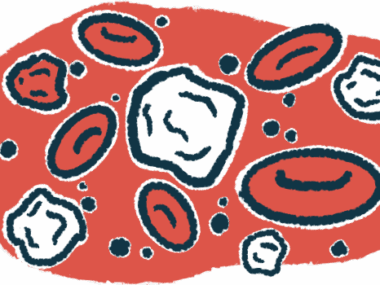Gut Microbiota Differs in Myasthenia Gravis Patients, Pilot Study Reports
Written by |

Gut microbiota is altered in people with myasthenia gravis (MG), opening the door for exploring the use of microbiota-modulating therapies, like probiotics, as potential ways of better managing the disease.
Results of the pilot study, “Fecal microbiota profile in a group of myasthenia gravis patients,” were published in the journal Scientific Reports.
Multiple studies have shown that the bacteria living in our gut, or microbiota, play a key role in health and disease.
Besides their crucial role in food digestion, fighting disease-causing microorganisms, and producing vitamins, the gut’s bacteria may also influence several illnesses.
Several autoimmune diseases have been associated with alterations in patients’ microbiota, including those of the nervous system. However, studies regarding the influence of gut bacteria on neuromuscular conditions like myasthenia gravis are still scarce.
To address this question and improve understanding of the microbiota changes associated with MG, a team of researchers in Spain and Italy studied the types of bacteria residing in the gut of MG patients compared with those of healthy subjects.
Fecal samples from 10 MG patients (positive for antibodies anti acetylcholine receptor) and from 10 age- and sex-matched controls, recruited at the same center, the Asturias Central University Hospital in Spain, were analyzed.
Bacterial composition in the feces was determined by several genetic techniques, including gene profiling using DNA sequencing.
MG patients’ gut microbiota showed significant changes relative to healthy controls, suggesting ” a severe dysbiosis [microbial imbalance] in the gut microbiota of these patients” the study noted. Specifically, patients had lower proportions of bacteria from the families Verrucomicrobiaceae and Bifidobacteriaceae, and a higher proportion of bacteria from the Bacteroidetes group and from a family known as Desulfovibrionaceae.
In contrast to alterations in broader bacteria groups, no significant differences were found among bacteria species within bifidobacteria between MG patients and the control group.
Researchers also evaluated the profile of small fat molecules called short chain fatty acids. These are produced by bacteria fermenting sugars that are difficult to digest for humans (e.g., fibers). Intestinal bacteria help break complex sugars into smaller molecules, including short chain fatty acids, that can then be absorbed.
Because different bacteria break down sugars in different short chain fatty acids, the relative abundance of these fat molecules gives us clues about which bacteria groups predominate in our gut.
However, regarding short chain fatty acids, no significant changes were found in MG patients.
“Our data indicates an altered fecal microbiota pattern in MG patients,” the researchers wrote, and “suggest the potential interest of therapies aimed at modulating the gut microbiota in the management of MG.”
The study pointed out specific microbiota groups that are altered in MG patients, and which may be modulated by probiotics, prebiotics, or other agents, the researchers said.
Probiotics are live microorganisms, normally specific types of bacteria or yeast, consumed for their health benefits. Many probiotics include “healthy” bacteria (e.g., lactobacillus and bifidobacteria) that normally colonize our gut and help keep it functioning well. Prebiotics are compounds, generally complex sugars, found in fruits and vegetables that promote the growth of beneficial bacteria in the gut.
Although the study focused on a subset of MG patients, those with antibodies anti-acetylcholine receptor (AChR), “the encouraging results obtained support new studies focusing also on other MG patient subgroups with different clinical presentation and biomarkers,” the researchers added.
The team cautioned that treatments used by patients may have an effect on the gut microbiota, and account for some of the differences observed in the study.



Fran Campochiaro
This was encouraging to read. Thank u for your research and trying to help.
T Wood
Would the MG patient need a Genova Test? Also, would you happen to know which probiotic was given?